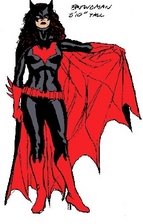Sir Francis the Whiner
Lately, I’ve been reading, or attempting to read, Sir Francis Chichester’s Gipsy Moth Circles the World. It’s been difficult. I’ve gotten maybe a quarter of the way through the book, and I find myself thoroughly fed up with his attitude. He seems to have very little to offer other than complaints about what’s not going well.
Yes, those complaints have some validity, such as his problems with the boat’s handling and extreme tippiness. In 1967, there weren’t such things as computer simulations that could test a boat design long before the boat ever got built, so it wasn’t until the boat’s hull actually went into the water that its serious stability problems could be observed. But still, boat designers should at least have had some idea of what made for stability. And it seems that some of those boat designers railroaded Sir Francis a bit – they pressured him into accepting design changes that probably weren’t a good idea.
Still, even if most of the problems were the boat designers’ fault, I find I’m getting really tired of Sir Francis’ complaints. And it’s not just about the boat designers, either. Apparently, when the boat was being loaded, somebody wasn’t careful about the crates of eggs. Most of them got cracked, and so Sir Francis had to throw most of them out. Yeah, that’s a major waste. But I guess what I’m getting most tired of is how Sir Francis tends to blame everybody else for the problems he’s having. Nothing is really his fault. Yeah, the eggs, probably somebody should have been more careful with the crates. But he’s also dealing with a leg that he injured before the voyage started but he didn’t go to a doctor about it. Well before the start of the journey, the leg was showing signs of a serious injury, but he ignored those. Now he’s complaining about problems with that leg. What hypocrisy.
I much prefer the narrative of Joshua Slocum. He was far less ego-driven, and he just plain did what needed to be done to get the job done. Yeah, he might have had physical limitations, but he barely mentioned them. He certainly never whined about anything. Anything that went wrong, it was his fault, not somebody else’s. His boat may have had its shortcomings, but he didn’t blame the boat’s shortcomings for anything. He just worked around the problems.
I was in elementary school when Sir Francis made his journey. I remember reading about it in the Weekly Reader that was handed out in my school classes. I also remember articles about some communities in Arizona banning mulberry trees, because they produced pollen that aggravated allergies that had led people to move to Arizona in the first place; futuristic ideas about cars that would sound a warning signal and flash a warning light if people didn’t have their seat belts fastened; and gypsy moths devastating forests in the Eastern U.S.
At the same time, television news showed a whole lot of coverage of the war in Vietnam. There were shots of soldiers shooting machine guns at unseen targets, and airplanes dropping bombs, and helicopters doing who-knows-what. The Weekly Reader wasn’t about to even mention that a war existed.
I don’t really want to minimize Sir Francis’ accomplishments, but all of the whining in his book really diminishes the admiration I had felt as a result of the Weekly Reader articles. I definitely prefer Slocum’s “It needed to get done, so I did it” attitude.




